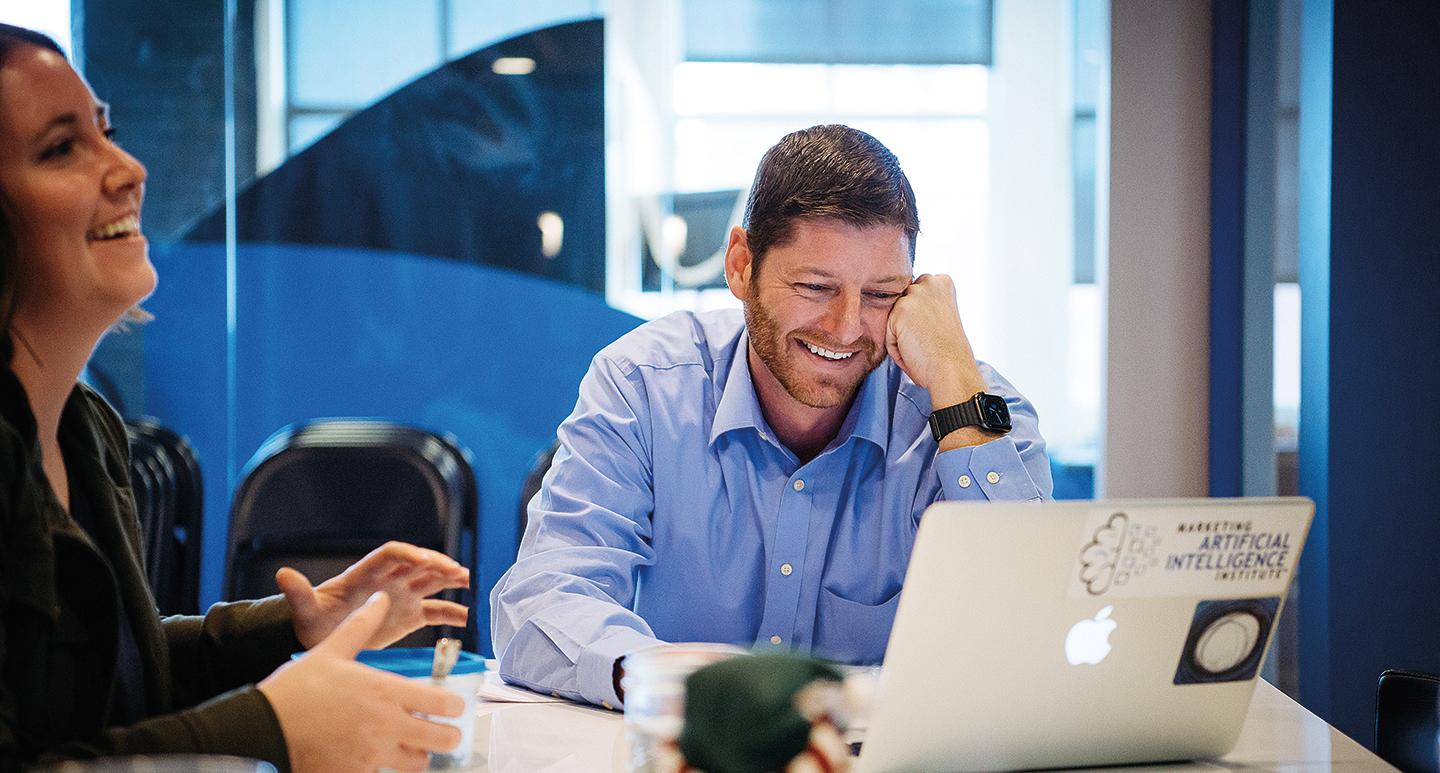The question-answering computer, named “Watson” by its IBM creators, handily defeated Ken Jennings and Brad Rutter while much of the tech world watched with interest.
The historic match between man and machine also caught the interest of Bobcat entrepreneur Paul Roetzer.
At the time, the Clevelander was wrapping up his first book, The Marketing Agency Blueprint, in which he laid out the disruptive path he had blazed through the marketing industry since founding his agency, PR 20/20, in 2004.
Roetzer, BSJ ’00, posited that the traditional marketing agency model was broken. So, he created a new one—one that rejected customary pillars like billable hours and requests for proposals and embraced transparency, technology, and talent.
This innovative vision attracted clients and employees alike, and the business grew. However, Roetzer’s natural curiosity kept his gaze trained on the horizon. After watching Watson’s victory, Roetzer immersed himself in artificial intelligence (AI) research, eventually realizing that this technology would lead another, far greater disruption within the marketing industry.
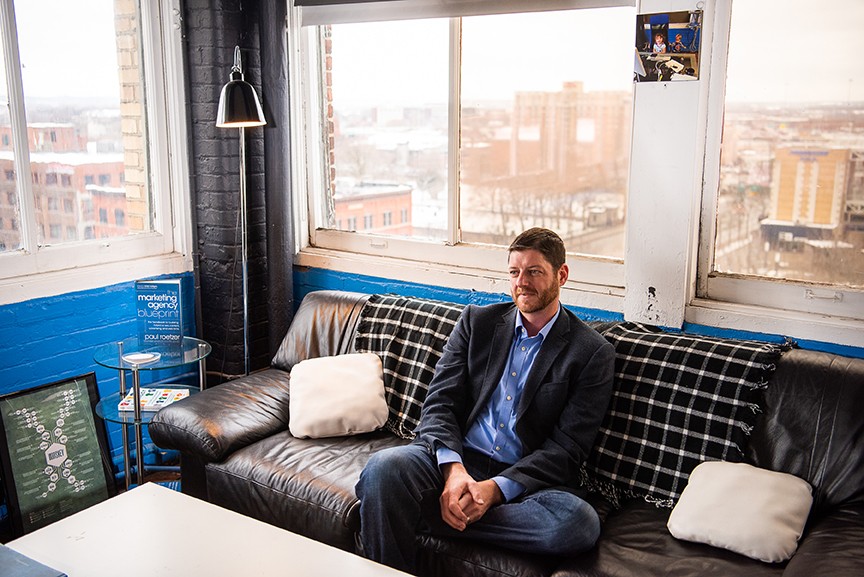
Paul Roetzer, BSJ ’00, is no stranger to disruption, and he’s poised to lead another sea change as the marketing industry adopts increasingly ubiquitous artificially intelligent tools. Photo by Dustin Franz, BSVC ’10
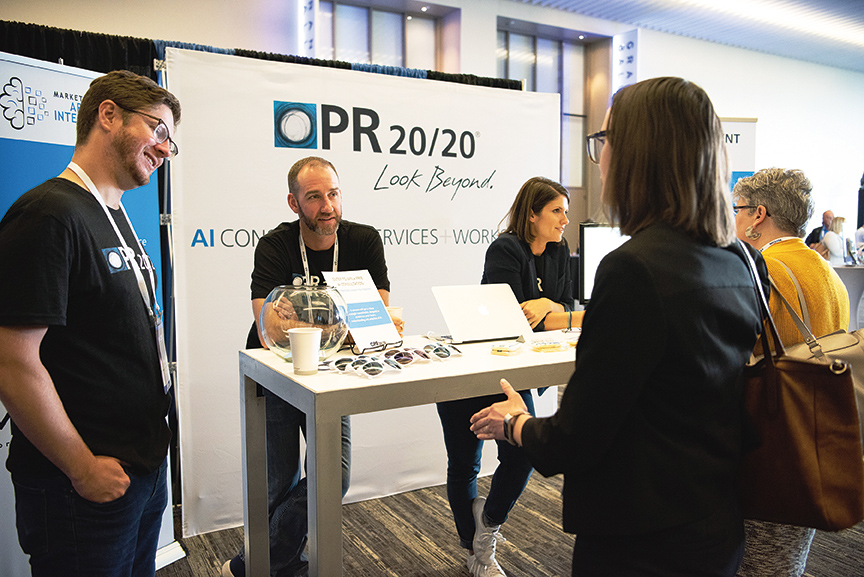
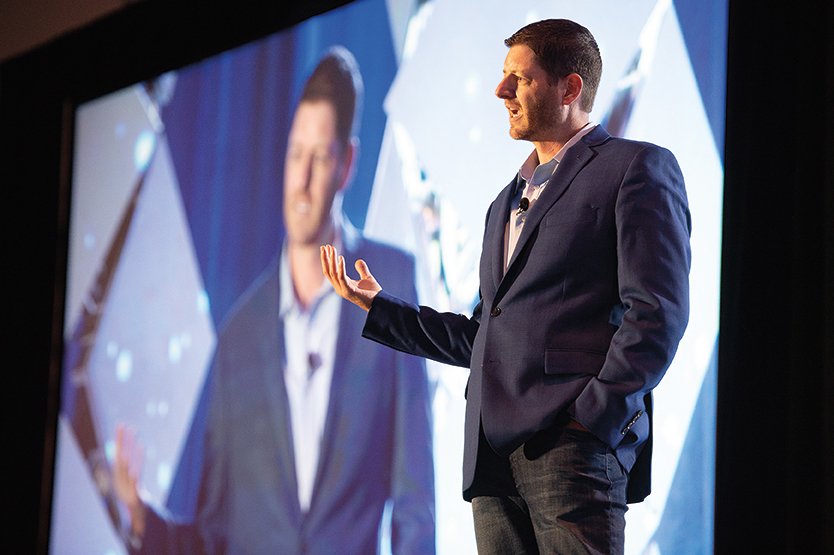
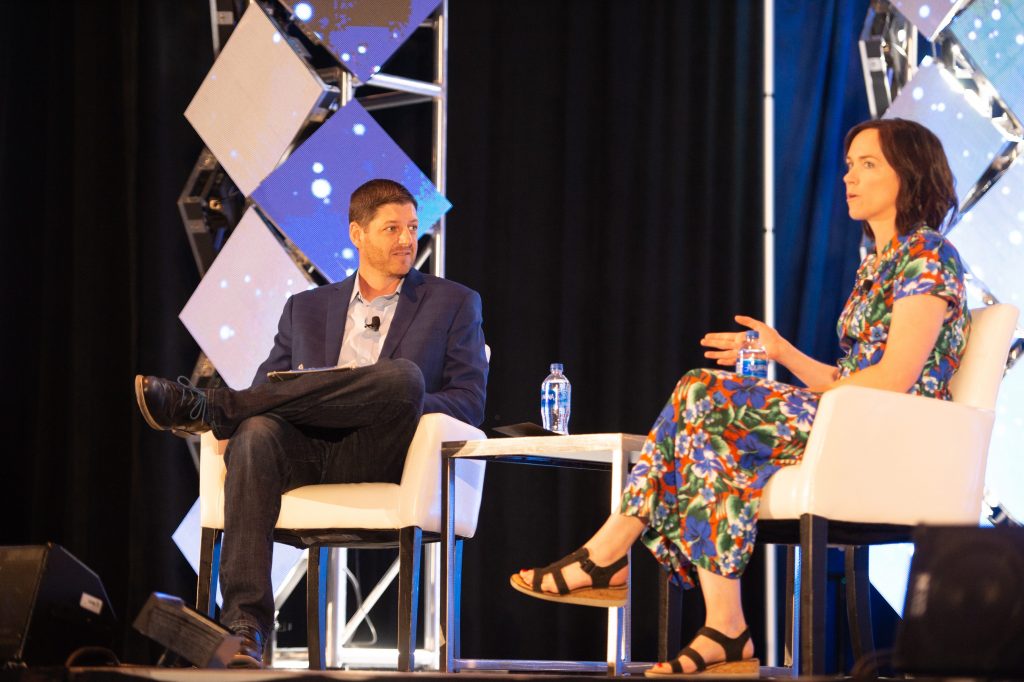
Speakers from Facebook and Hubspot, as well as authors, journalists, and futurists working on the cutting edge of the field discussed topics from practical applications of AI in marketing to the ethical questions the technology presents.
Karen Hao, the AI reporter for MIT Technology Review, moderated a panel discussion on the ethics of AI.
“All technology can be wielded for good or bad. ... I think the reason why AI is particularly troublesome in this regard is because it just scales things so quickly. Software is much easier to deploy as a technology than other things,” Hao says.
Because AI-marketing has the unprecedented potential to affect billions of consumers and comes with its own ethical conundrums, Roetzer set up the panel as a main-stage event in order to reach all attendees.
“Nobody was probably coming to the conference thinking, ‘Oh, I hope we have a topic on ethics,’ but I was not going to let people leave without listening to a topic on ethics,” Roetzer says. “Otherwise, you could look at what we’re doing as just teaching people to better predict and influence consumers. And that’s not at all what we’re in it for.”
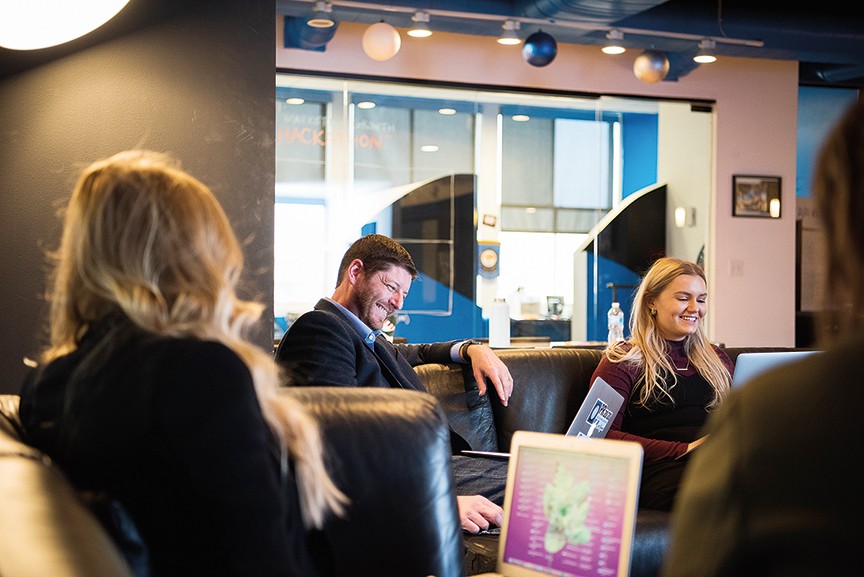
The staff of Roetzer’s PR 20/20—many of them Bobcats—have one word to describe the 16-year-old agency’s culture: family. Photo by Dustin Franz
How do you maintain that culture across a staff of 16? It’s not easy, says Vice President of Talent Tracy Lewis, BSJ ’09.
“One wrong hire can have a huge impact on the overall team, the overall happiness of the team, the way we treat one another,” she says. In hiring five of his current employees, Roetzer chose fellow Bobcats. A coincidence? Yes and no.
“In the early days, we just knew the skills we were looking for ... and we knew that OU produced it,” Roetzer says. “Then, it just so happened a lot of the people we interviewed came from similar value systems.”
Roetzer’s character and vision have a reverberant effect on those around him. For Kaput, it’s Roetzer’s “relentless curiosity about what comes next.” Miller agrees, pointing out the truth behind the agency’s tagline: “Look beyond.”
“This is our culture. People are working here because they’re doing cool and innovative things and they want to be a part of that,” she says. “Whether it’s our employees, or clients, or industry peers, it’s what you expect when you associate with PR 20/20.”


